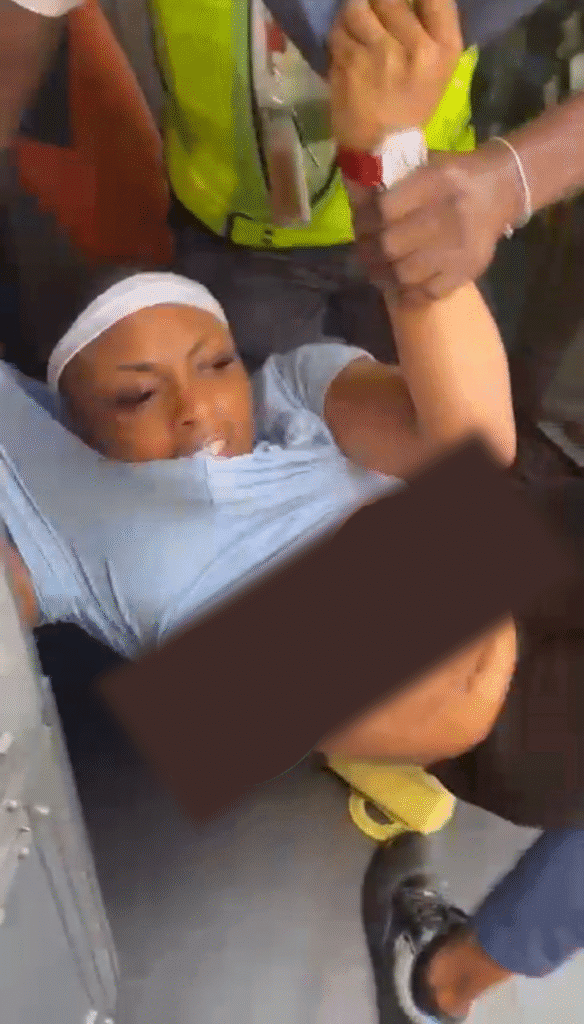
Ibom Air Passenger’s Removal Sparks Debate Over Passenger Rights and Privacy Laws


The dramatic removal of a passenger from an Ibom Air flight on Sunday, August 10, has ignited a nationwide conversation about aviation safety, human rights, and privacy protections in Nigeria’s air transport sector.
The passenger, identified as Ms. Comfort Emmanson, was involved in an altercation with crew members aboard the airline’s Uyo–Lagos flight after allegedly refusing to switch off her mobile phone prior to take-off. According to Ibom Air’s official statement, her behaviour escalated to physical assaults on crew and security personnel upon arrival in Lagos, prompting her forceful removal from the aircraft. However, the incident has drawn controversy after video footage emerged online showing part of Ms. Emmanson’s breast exposed during the removal process. The clip, believed to have been recorded and circulated by individuals associated with the airline, has raised serious questions about passenger dignity and data protection in Nigeria’s aviation industry.
Aviation Law and Passenger Removal
Under international aviation standards, including the Tokyo Convention 1963 and guidance from the International Air Transport Association (IATA), crew and the Pilot-in-Command have the authority to restrain or disembark passengers whose conduct threatens the safety of the aircraft or persons on board. Nigerian law mirrors these provisions through the Nigerian Civil Aviation Regulations (NCAR), granting airlines the right to remove unruly passengers, provided such actions are reasonable, proportionate, and respectful of human dignity. It Is my humble view that, although Ibom Air may have been within its rights to remove Ms. Emmanson for safety reasons, the exposure of her body and the subsequent public circulation of the footage could breach both Nigerian law and international standards
Potential Breach of Rights
Nigeria’s 1999 Constitution guarantees the right to dignity (Section 34) and privacy (Section 37). Additionally, the Cybercrimes Act 2015 criminalises the non-consensual distribution of intimate images, while the Violence Against Persons (Prohibition) Act 2015 prohibits conduct that humiliates or degrades a person, including unwanted exposure of body parts. If proven that airline staff recorded and released the video, Ms. Emmanson could have grounds for both civil claims—including damages for invasion of privacy—and criminal complaints against those responsible
Remedies Available
Ms. Emmanson may:
- Petition the National Human Rights Commission (NHRC);
- File a complaint with the Nigerian Civil Aviation Authority (NCAA) for breach of Consumer Protection Regulations;
- Pursue civil litigation for damages;
- Seek criminal prosecution under the Cybercrimes Act and VAPP Act.
Wider Implications for Nigerian Aviation
The case highlights the delicate balance between enforcing aviation safety rules and safeguarding passenger rights. It also underscores the need for Nigerian airlines to strengthen crew training on managing unruly passengers without violating their dignity and to implement strict protocols preventing unauthorised publication of in-flight security footage.
As the matter continues to generate public debate, I believe this could set an important precedent for passenger privacy protections and airline liability in Nigeria.
Yinka Dams Olaiya LLM Ph.D in v is an award winning member of NBA Lagos Branch Human Rights Committee. Consultyinka11@yahoo.com

